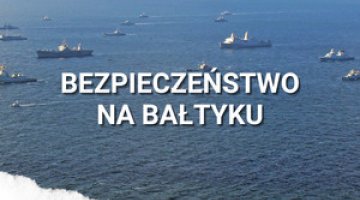Nausėda, Lithuania’s new president
The independent candidate, the economist Gitanas Nausėda, won the second round of elections in Lithuania on 26 May with 65.8% of the vote. His rival, the former Minister of Finance Ingrida Šimonytė, who was supported by the conservatives, mainly received support from the two largest cities of Vilnius and Kaunas; she received 32.86% of the vote, just over one and a half percentage points more than she did in the first round, which she won. Nausėda will take office on 12 July, the day when President Dalia Grybauskaitė’s second five-year term comes to an end; he will then decide the future of the government, led by Saulius Skvernelis. In accordance with the constitution, after the new president takes office, the prime minister will cede his authority to the President and wait for his mandate to be confirmed again.
Commentary
- Nausėda, a specialist in the field of banking and economic analysis, owed his victory to his emphasis on social issues, including his announcement that he would increase the protective role of the welfare state and that the president’s office would supervise the introduction of controversial reforms to education and health care. His sensitivity to social issues meant that he struck a chord with a wider group of voters than his rival, especially in smaller towns and villages.
- Nausėda has announced measures to calm the political disputes inside the country. His strong public mandate and lack of political affiliation might help him mediate between the conflicting forces of the ruling parties and the opposition. The president-elect’s current challenge is the tense political situation linked to the parliamentary elections scheduled for October 2020; these will be affected by the results of the elections to local government, the presidency and the European Parliament which have been held between March to May. The Union of Greens and Farmers (LŽVS), which has run the country since 2016, has suffered a series of defeats, while the opposition Conservatives have been gaining. The situation in the country has been further complicated by the public announcements from the Prime Minister Skvernelis of his future resignation and from Ramūnas Karbauskis, the leader of the LŽVS, who announced the LŽVS’s withdrawal from the coalition, although they later partially retracted these declarations.
- Ingrida Šimonytė still has a chance to play an important role on the political scene. Although she not managed to win round many new supporters after the first round, she has proven that she does have a faithful electorate, and they could prove to be a valuable asset to the conservatives in the parliamentary elections. Shortly after the presidential election, the chairman of the Conservatives, Gabrielius Landsbergis, said that Šimonytė would head the Conservatives’ electoral list in the next parliamentary elections, and if they win, she will be the party’s candidate for prime minister.
- The Conservatives’ results in the voting for the European Parliament (18.6%), which was held along with the second round of the presidential elections, offer them hope that they could win the 2020 elections. The rivalry between Nausėda and Šimonytė has not been based on personal disputes or negative campaigning, which gives both politicians a basis for future cooperation. The president-elect is willing to support Šimonytė as a possible candidate for the premiership, on condition that she becomes a member of the conservative Homeland Union/Christian Democrats. The president-elect is thus putting pressure on the Conservatives to replace their leader: Nausėda’s relationship with Landsbergis is much worse than with Šimonytė, and Landsbergis himself is also at loggerheads with his political rivals.
- According to the constitution, the president represents the country on the international arena, and has the right to co-create foreign policy together with the government. Nausėda has not announced any fundamental changes to the country’s foreign policy; he holds pro-Western views, which he claims were formed during the course of his studies in Germany. However, he wants to strengthen the areas he regards as having top priority, including cooperation with Poland, and has announced that his first foreign visit will be to Warsaw. Nausėda recognises the need for Lithuania to make similar judicial reforms to those which are being carried out in Poland. Poland is important for him in the context of Lithuanian plans for territorial defence and economic cooperation, as well as in developing a common position for the region in the EU.
- Another objective for the new president will be to strengthen cooperation within the Baltic area. He has announced regular meetings among the leaders of the three Baltic states, as well as the co-ordination of regional cooperation at the highest level. Such cooperation has already existed for a long time, but its effectiveness has been limited by distrust between the Baltic partners, their divergent economic interests and competition. Nausėda has declared that he favours “the EU as a confederation” and considers NATO to be the sole guarantor of Lithuania’s security.
- Nausėda is interested in maintaining relations with Russia, and above all with the Russian public. He has expressed his support for the Estonian president Kersti Kaljulaid, who initiated a meeting with President Vladimir Putin in Moscow. However, Nausėda has made any new attitude towards Russia and the issue of sanctions conditional on the situation in Ukraine. He has expressed a desire to maintain close relations with Kyiv, and has declared Lithuania’s continued support for Ukraine’s integration with the EU. With regard to China’s economic expansion, Nausėda wants to work out a common position within the EU, and likewise on the issues of cyber-security and climate change.
- Nausėda received the most support from the Salčininkai district (91.91% votes), where the majority of voters are ethnic Poles. The strong support he received from the important Vilnius region is the result of an appeal by Waldemar Tomaszewski, the leader of the Electoral Action of Poles in Lithuania/Christian Families Alliance, for the Polish community to turn out in the presidential and EP elections (Tomaszewski himself won a seat to the European Parliament) and vote for Nausėda. The new president received the votes of Lithuanian Poles despite his principled position on the spelling of Polish names, which distinguished him from the other candidates in the presidential election; he favours the use of the original spelling only on the passport’s second page. Nevertheless, Nausėda has expressed his support for continuous education in the Polish language from kindergarten to higher education. He has put forward plans for regional development which are relevant to the residents of the Vilnius region, notably including the creation of a special economic area in the Salčininkai region. These declarations by the president-elect can also be interpreted as goodwill gestures towards the Polish government, which has been working for years to support the Poles in the Vilnius region.




